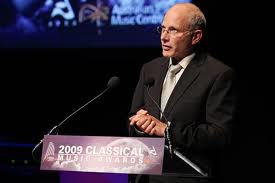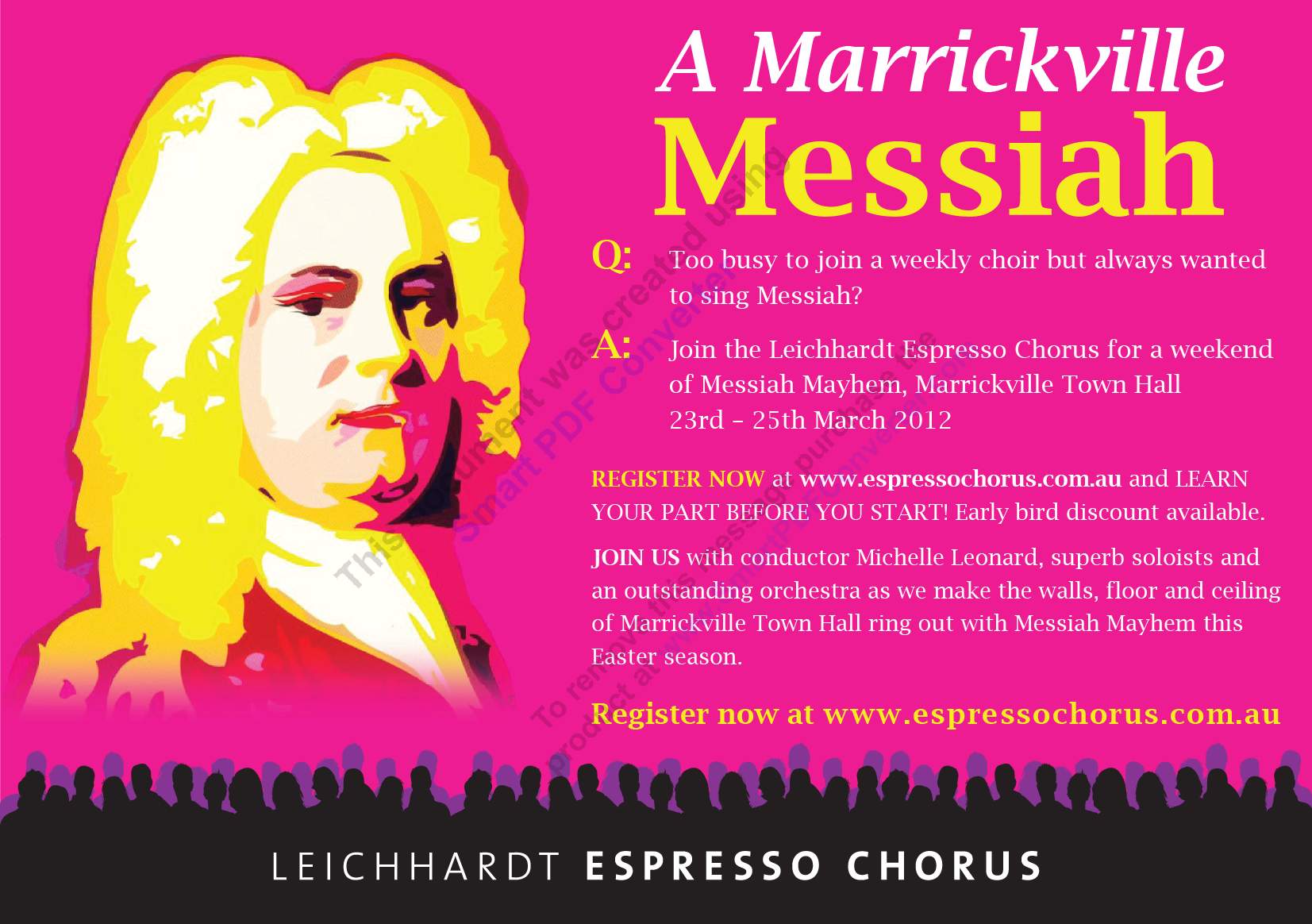2013 Paul Lowin Winners Announced

The winners of the prestigious 2013 Paul Lowin Prizes were announced at ceremony in Sydney on Monday night, 28th October.
Elliot Gyger won the $15,000 purse in the Song Cycle category for giving voice (2012), a cycle of eight songs for mezzo-soprano and ensemble, based on Australian female poets’ words about early childhood and parenthood.
Nigel Westlake was awarded $25,000 in the Orchestral category for his powerful Missa Solis – Requiem for Eli (2010) scored for symphony orchestra, chorus and male treble solo.
In a bittersweet coincidence, both works were inspired by the composers’ children. Missa Solis – Requiem for Eli was written in tribute to Westlake’s 22 year old son who died prematurely aged nearly 22. giving voice, says its composer Elliot Gyger, was inspired by the 20 month babbling of his daughter Sophia, now aged 11.
Addressing the gathering at APRA headquarters in Sydney, John Davis, CEO of the Australian Music Centre, described the Paul Lowin Prizes as ‘The Archibalds of the music world.” In between the announcements of the winners, Halcyon took the stage to sing two works from their Kingfisher – Songs for Halycon project.

The prizes are awarded by independent juries gathered from representatives of the Australian music community. This year the panel comprised Nigel Butterley, Brett Kelly and Peter McCallum in the Orchestral category, and John McCaughey, Roland Peelman and Sally Whitwell in the Song Cycle category. Both panels were chaired by Gwen Bennett.
The Paul Lowin Prizes, held every second or third year, are presented by Perpetual as Trustee for the Paul Lowin Prizes, and administered by the Australian Music Centre. This year, the competition attracted the highest-ever number of entries in both categories.
The other finalists for the Orchestral Prize included Brett Dean for The Last Days of Socrates, Andrew Ford Blitz and Mark Isaacs for Invocations. The other contenders for the Song Cycle Prize were Ross Edwards for Five Senses – five poems of Judith Wright and Andrew Ford for Willow Songs – six poems of Anne Stevenson.
Paul Lowin, whose legacy supports the awards, was born in Czechoslovakia in 1862. He came to Australia as a journalist in 1939. By 1941, however, he was running a successful textile business in George Street and had several investments in property. In Sydney, Lowin created a circle of friends around theatre and music. He became friends with the Viennese conductor Henry Krips, whose wife described Lowin as ‘full of ideas and cultural ambition; rather colourful’. The Australian Dictionary of Biography describes him as often bringing back from his trips to Europe, recordings and music scores that were unavailable in Australia and which were given a hearing in musical soirées in his flat, attended by a group of artistically inclined young men and his ‘large and affable black dog’.
Paul Lowin returned to Vienna in the early 1950s, where he died in 1962.
Andrew Baker, State Manager NSW & ACT for Perpetual Private in his comments said “Paul Lowin’s generosity and foresight in establishing a trust in perpetuity will continue to encourage musical composition in Australia – ensuring Australian composers give expression to Paul’s passion for generations to come. Since their establishment in 1990, the Paul Lowin Prizes have awarded over $370,000 to deserving recipients. I would also like to express my appreciation to the judges who undertake the extremely difficult task of assessing the many applications. Without their efforts these awards would not be possible.”
The judges reported an extremely high standard of composition in the entries. Their comments on Nigel Westlake’s Missa solis – Requiem for Eli
“This is a distinguished and masterly work, deeply felt and with great impact. It lives up to expectations in creating a compelling sense of occasion. Big gestures written for large orchestra and choir contrast with intimate gestures, such as the poignant, delicate writing for the treble soloist….. One cannot help but be affected by this passionate music.”
And on Elliott Gyger’s giving voice –
“ A sophisticated yet playful work in which words are both the beginning and the end….. The text is unusual …. with eight poems that embrace babyhood, the formation of words, speech, and poetic images. The great technical accomplishment of this composition draws in a truly individual way on a vocal-chamber tradition reaching back to the cantatas of Bach and forward to the song-cycles of Elliott Carter. This piece is innovative, effective and impressive, even theatrical. A striking work.”





